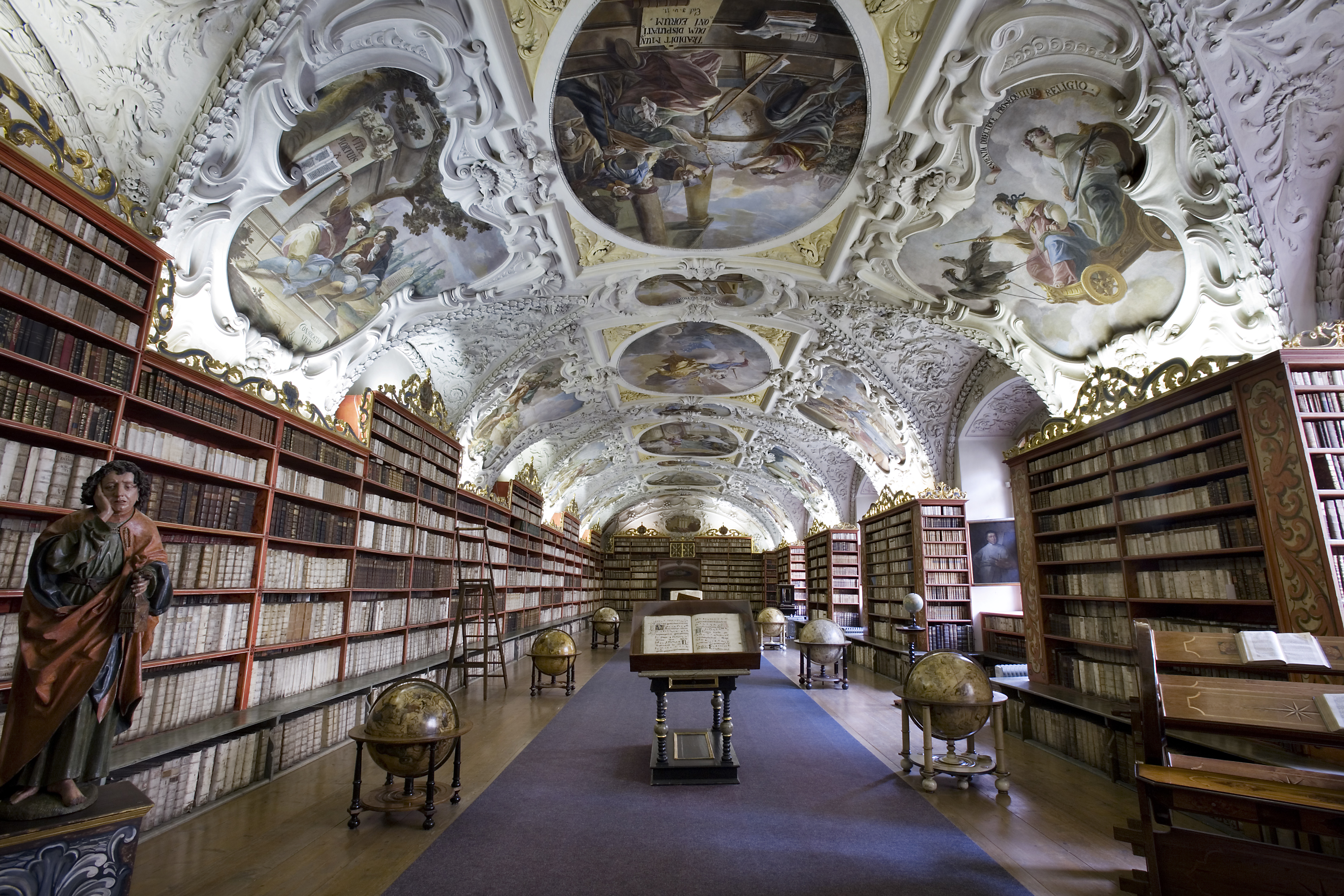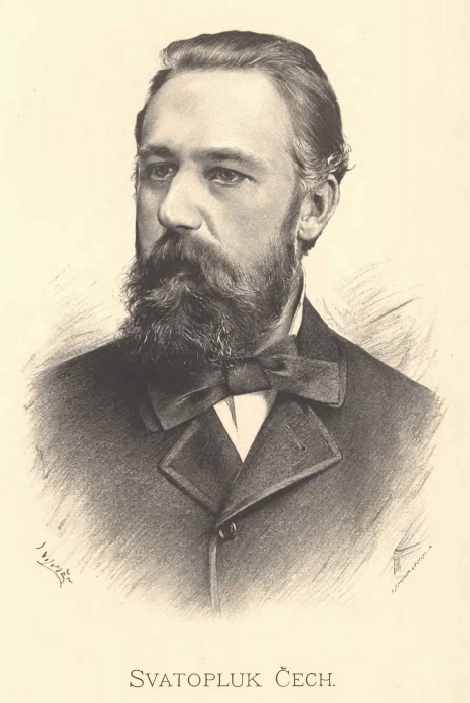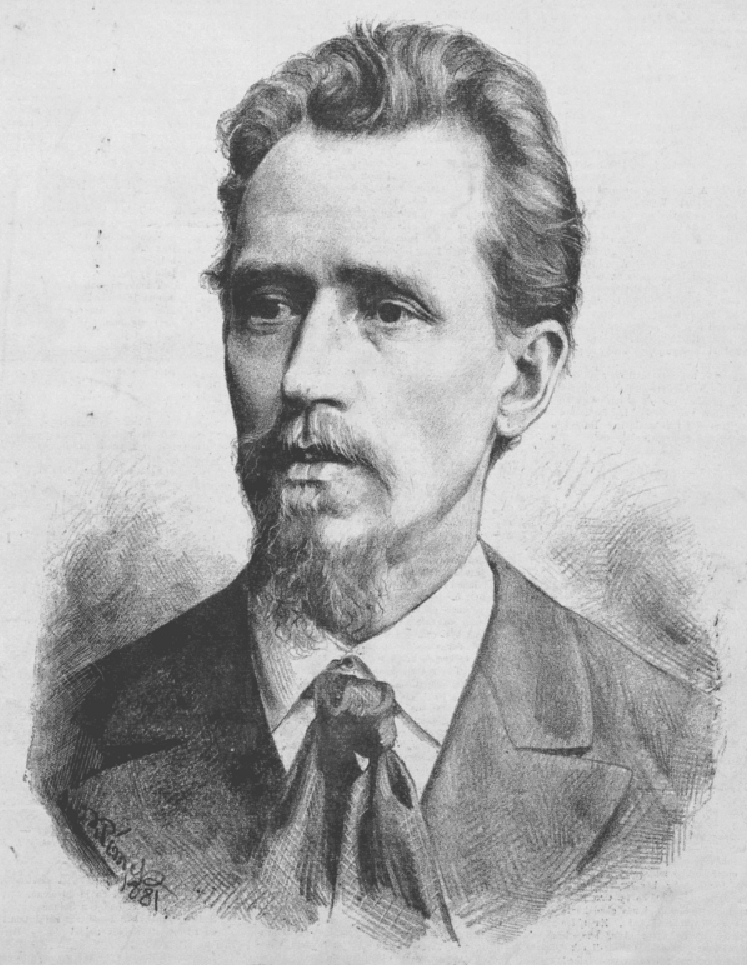|
Ruchovci
Ruchovci (also called as ''škola národní'' – National School) was a group of Czech poets and writers born between 1845 and 1855. The members dealt with social and national problems that were current at the time. They were against foreign influences on Czech literature. In order to achieve this, they supported patriotism of Slavicism and the independence of the Czech history and the landscape. In 1868 their literary almanac called ''Almanach'' ''Ruch'' was published. Authors * Eliška Krásnohorská * Svatopluk Čech * Ladislav Quis * Josef Václav Sládek (just in the beginning) References See also * Czech National Revival The Czech National Revival was a cultural movement which took place in the Czech lands during the 18th and 19th centuries. The purpose of this movement was to revive the Czech language, culture and national identity. The most prominent figures o ... * Májovci * Lumírovci {{Portal, Czech Republic, Literature Czech literature Literary so ... [...More Info...] [...Related Items...] OR: [Wikipedia] [Google] [Baidu] |
Ladislav Quis
Ladislav Quis (7 February 1846, Čáslav – 1 September 1913, Černošice) was a Czech writer, poet, lawyer, journalist, translator and critic; associated with the literary group, Ruchovci. Biography He was born to the city physician, Ignác Quis, and his wife Veronika, née Matieková. His education began at a grammar school in Prague, then continued at the Gymnasium (school), gymnasium in Tábor, during the time its Director was the well known Czech patriot, . At this time, he was already engaged in literary activities; creating a literary association (''Slavoj''), and a magazine (''Lužnice''). In 1865, he published his first poems and short stories in ''Tábor'' (a local magazine that was published until 1941). After graduating, he returned to Prague to study law, and received his doctorate in 1874. In 1872, he began work as an editor at the magazine, ''Slovan'', replacing Karel Sabina, who went into hiding, under suspicion of being a police informant. There, he mainly wrot ... [...More Info...] [...Related Items...] OR: [Wikipedia] [Google] [Baidu] |
Májovci
The ''Májovci'' ("''May'' School") were a significant group of Czech novelists and poets of the second half of the 19th century, who were inspired by the work of Karel Hynek Mácha, Karel Havlíček Borovský and Karel Jaromír Erben. After the fall of Metternich's absolutism in the Revolution of 1848, there appeared on the scene a young generation preoccupied with urban life and contemporary social problems, and determined to reintroduce Czech as a literary language. Politically they promoted the cause of liberty, democracy, and social justice, fighting the reactionary Bach government and making efforts to improve the status of the Czech nation within the Austro-Hungarian Empire. The first yearbook of the group was published in 1858. Named ''Máj'' ("May") after Mácha's great poem, it included contributions by Jan Neruda and Vítězslav Hálek, as well as Adolf Heyduk, Rudolf Mayer, Karolina Světlá, Jakub Arbes, Karel Sabina, Josef Václav Frič and Gustav Pfleger Moravsk ... [...More Info...] [...Related Items...] OR: [Wikipedia] [Google] [Baidu] |
Czech Language
Czech (; Czech ), historically also Bohemian (; ''lingua Bohemica'' in Latin), is a West Slavic language of the Czech–Slovak group, written in Latin script. Spoken by over 10 million people, it serves as the official language of the Czech Republic. Czech is closely related to Slovak, to the point of high mutual intelligibility, as well as to Polish to a lesser degree. Czech is a fusional language with a rich system of morphology and relatively flexible word order. Its vocabulary has been extensively influenced by Latin and German. The Czech–Slovak group developed within West Slavic in the high medieval period, and the standardization of Czech and Slovak within the Czech–Slovak dialect continuum emerged in the early modern period. In the later 18th to mid-19th century, the modern written standard became codified in the context of the Czech National Revival. The main non-standard variety, known as Common Czech, is based on the vernacular of Prague, but is now s ... [...More Info...] [...Related Items...] OR: [Wikipedia] [Google] [Baidu] |
Czech Literature
Czech literature can refer to literature written in Czech, in the Czech Republic (formerly Czechoslovakia, earlier the Lands of the Bohemian Crown), or by Czech people. Most literature in the Czech Republic is now written in Czech, but historically, a considerable part of Czech literary output was written in other languages as well, including Latin and German. Middle Latin works Bohemia was Christianized in the late 9th to 10th centuries, and the earliest written works associated with the kingdom of Bohemia are Middle Latin works written in the 12th to 13th centuries (with the exception of the Latin ''Legend of Christian'', supposedly of the 10th century but of dubious authenticity). The majority of works from this period are chronicles and hagiographies. Bohemian hagiographies focus exclusively on Bohemian saints (Sts. Ludmila, Wenceslas, Procopius, Cyril and Methodius, and Adalbert), although numerous legends about Bohemian saints were also written by foreign authors. ... [...More Info...] [...Related Items...] OR: [Wikipedia] [Google] [Baidu] |
Patriotism
Patriotism is the feeling of love, devotion, and sense of attachment to one's country. This attachment can be a combination of many different feelings, language relating to one's own homeland, including ethnic, cultural, political or historical aspects. It encompasses a set of concepts closely related to nationalism, mostly civic nationalism and sometimes cultural nationalism. Some manifestations of patriotism emphasize the "land" element in love for one's native land and use the symbolism of agriculture and the soil – compare '' Blut und Boden''. Terminology and usage An excess of patriotism in the defense of a nation is called chauvinism; another related term is ''jingoism''. The English word 'Patriot' derived from "Compatriot," in the 1590s, from Middle French "Patriote" in the 15th century. The French word's "Compatriote" and "Patriote" originated directly from Late Latin Patriota "fellow-countryman" in the 6th century. From Greek Patriotes "fellow countryman," ... [...More Info...] [...Related Items...] OR: [Wikipedia] [Google] [Baidu] |
Slavic Studies
Slavic (American English) or Slavonic (British English) studies, also known as Slavistics is the academic field of area studies concerned with Slavic areas, languages, literature, history, and culture. Originally, a Slavist or Slavicist was primarily a linguist or philologist researching Slavistics. Increasingly, historians, social scientists, and other humanists who study Slavic area cultures and societies have been included in this rubric. In North America, Slavic studies is dominated by Russian studies. Ewa Thompson, a professor of Slavic studies at Rice University, described the situation of non-Russian Slavic studies as "invisible and mute." History Slavistics emerged in late 18th and early 19th century, simultaneously with Romantic nationalisim among various Slavic nations, and ideological attempts to establish a common sense of Slavic community, exemplified by the Pan-Slavist movement. Among the first scholars to use the term was Josef Dobrovský (1753–1829). The h ... [...More Info...] [...Related Items...] OR: [Wikipedia] [Google] [Baidu] |
Eliška Krásnohorská
Eliška Krásnohorská (18 November 1847, in Prague – 26 November 1926, in Prague) was a Czech feminist author. She was introduced to literature and feminism by Karolína Světlá. She wrote works of lyric poetry and literary criticism, however, she is usually associated with children's literature and translations, including works by Pushkin, Mickiewicz and Byron. Krásnohorská wrote the libretti for four operas by Bedřich Smetana: '' The Kiss'', '' The Secret'', ''The Devil's Wall'' and ''Viola''. She also wrote the libretto for Zdeněk Fibich's opera ''Blaník''. In 1873, she founded the women's magazine , which she headed until handing it over to Jindřiška Flajšhansová in 1912. In 1890 Krásnohorská founded the Minerva School in Prague, the first '' gymnasium'' for girls in the Austro-Hungarian Empire. Its language of instruction was Czech Czech may refer to: * Anything from or related to the Czech Republic, a country in Europe ** Czech language ** Czechs, the people ... [...More Info...] [...Related Items...] OR: [Wikipedia] [Google] [Baidu] |
Svatopluk Čech
Svatopluk Čech (21 February 1846 in Ostředek near Benešov – 23 February 1908 in Prague) was a Czech writer, journalist and poet. Biography Čech studied at gymnasium (secondary school) in Prague, then studied law, and later worked in the journals Květy, Lumír and Světozor. His first poem, ''Husita na Baltu'', was published in the almanac ''Ruch'' in 1868. Similarly to his work ''Adamité'', it is inspired by history (Hussite Wars). His poem ''Evropa'' (1878) takes its cue from revolutionary movements of the time, his poem ''Slávie'' (1882) propagates ideals of Slavic unity, the poem ''Václav z Michalovic'' (1880) depicts religious oppression by the Jesuits, his poem ''Lešetínský kovář'' (1883 confiscated, 1899) social problems of industrialization. The books of lyrical poetry ''Jitřní písně'' (1887) and ''Nové písně'' (1888) reflect the national rebirth of the Czech people, and his poetry cycle ''Písně otroka'' reflects social problems. His best known ... [...More Info...] [...Related Items...] OR: [Wikipedia] [Google] [Baidu] |
Josef Václav Sládek
Josef Václav Sládek (27 October 1845 in Zbiroh – 28 June 1912 in Zbiroh) was a Czechs, Czech poet, journalist and translator, member of the literary group , pioneer of children's poetry in Czech lands. In 1865, he graduated at the Academic Gymnasium in Prague. In 1867, he became suspected by the Austro-Hungarian police of supporting the Czech opposition movement against the monarchy. In 1868 he moved to United States, where he spent two years working as a laborer. He was interested in the fate of indigenous peoples and blacks. He described his American experience in a collection of poems (titled ''Poems'') and in one prose (''American images''). His stay in the USA influenced him significantly. Throughout the rest of his life he focused on translating Anglo-American literature. He translated 33 plays by William Shakespeare and other works by Burns, Longfellow, Hart, Byron, Coleridge etc. Less known fact is that Sládek translated the Czech anthem Kde domov můj into English.ht ... [...More Info...] [...Related Items...] OR: [Wikipedia] [Google] [Baidu] |
Czech National Revival
The Czech National Revival was a cultural movement which took place in the Czech lands during the 18th and 19th centuries. The purpose of this movement was to revive the Czech language, culture and national identity. The most prominent figures of the revival movement were Josef Dobrovský and Josef Jungmann. Background Following the Battle of White Mountain in 1620, Czech lands experienced Germanisation politics spearheaded by the Habsburg Emperors. The oppression was also connected with religion – up to 95% of the inhabitants of Bohemia were Protestants (''See Hussite'') when the Habsburgs took power. Although the Habsburgs had promised freedom of religion, they started rampant anti-Reformation and re-Catholicization efforts which made most of the Czech elites flee the country. This violent re-Catholicization has been suggested to be one of the reasons behind today's widespread Czech atheism. During the two following centuries Czech had been more or less eradicated fro ... [...More Info...] [...Related Items...] OR: [Wikipedia] [Google] [Baidu] |
Literary Societies
A literary society is a group of people interested in literature. In the modern sense, this refers to a society that wants to promote one genre of writing or a specific author. Modern literary societies typically promote research, publish newsletters, and hold meetings where findings can be presented and discussed. Some are more academic and scholarly, while others are more social groups of amateurs who appreciate a chance to discuss their favourite writer with other hobbyists. Historically, "literary society" has also referred to salons such as those of Madame de Stael, Madame Geoffrin and Madame de Tencin in Ancien Regime France. Another meaning was of college literary societies, student groups specific to the United States. The oldest formal societies for writing and promoting poetry are the chambers of rhetoric in the Low Countries, which date back to the Middle Ages. 19th century literary societies Modern examples of literary societies include: * In France, Parnassian p ... [...More Info...] [...Related Items...] OR: [Wikipedia] [Google] [Baidu] |


_01.jpg)

